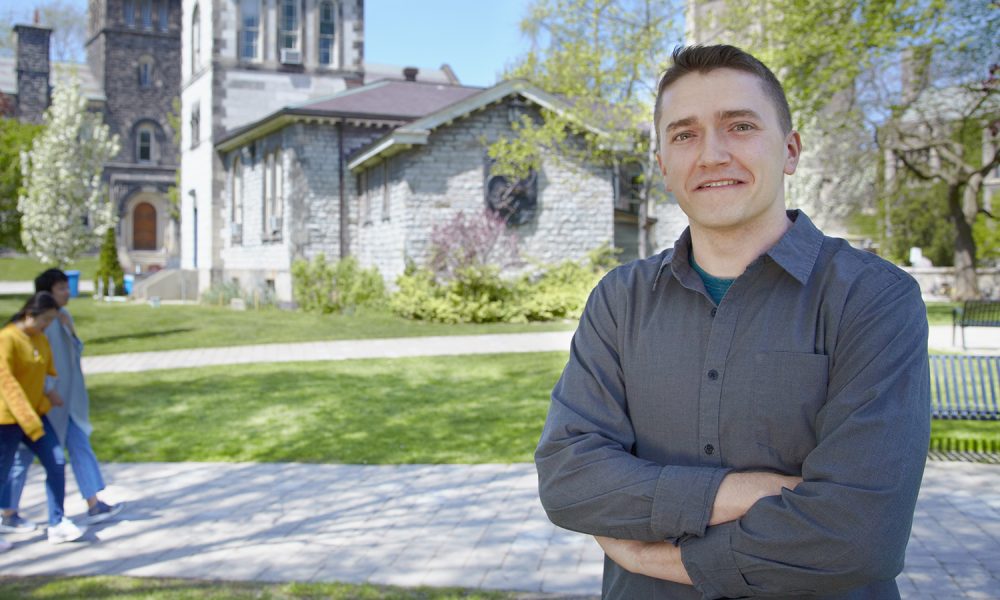Electrical and Computer Engineering
Program Overview
The Edward S. Rogers Sr. Department of Electrical and Computer Engineering is consistently ranked the top electrical and computer engineering department in Canada and among the top 15 in the world by many ranking organizations. Among our professors are 39 Fellows of the Institute of Electrical and Electronics Engineers (IEEE), 6 Fellows of the Optical Society, 10 Fellows of the Royal Society of Canada and 18 Fellows of the Canadian Academy of Engineering. ECE holds more than 40% of all U of T Engineering invention disclosures — in 2020 alone, we authored 142 patents. Our collaborative relationships with industry partners such as Google, Fujitsu, Ericsson, and LG help our students contribute to the department’s history of ground-breaking discoveries, patents and many spinoffs.
Our ECE graduate students are known for their innovation and problem-solving; approximately nine out of ten of our department invention disclosures each year involve a student, and dozens of our students receive major awards from the Natural Sciences and Engineering Research Council of Canada (NSERC), Canadian Institutes of Health Research (CIHR) and other agencies. Last year our research-stream students received funding totalling more than 12.5 million dollars and our 8:1 graduate student-to-faculty ratio provides our students with an excellent opportunity to build professional relationships with our faculty members. Upon graduation our students are primed for success in many fields, not only in engineering but also business, health care, law and more.
Our degree programs
We offer three degree programs: the Master of Engineering (MEng), the Master of Applied Science (MASc), and the Doctor of Philosophy (PhD) — with courses and research that encompass the theory and application of all aspects of the electrical and computer engineering.
The MEng is a course-based master’s degree intended to provide students with the training and expertise needed to succeed in today’s information economy. MEng students can choose from an expansive list of courses, with lectures and labs from both our faculty and industry experts. Research projects supervised by our world-class faculty are also available to some students.
Our MASc program is intended to give students an opportunity to develop their research skills; in addition to taking courses, their research activity is supervised by one of our faculty members. We expect that our MASc students will finish their studies and defend a thesis within a 24-month period, during which they will receive financial support from the department and their research advisor, as long as they maintain satisfactory progress. Many of our MASc students publish their research results in scientific journals and conferences.
Our PhD program provides students with the opportunity to develop an in-depth understanding of a particular field — it is a serious commitment to a given area or topic, and students are expected to make novel and significant contributions to their area of study. In addition to conducting research under the supervision of one or more members of our faculty, PhD students take relevant courses and must complete a qualifying examination. We expect that our PhD students will finish their study and research within a 48-month period. If maintaining satisfactory progress, they will receive financial support from the department and their research advisor for four years. We expect that our PhD students will publish their research results in internationally recognized and reputable scientific journals and conferences.
Please visit https://www.ece.utoronto.ca/graduates/admission/ for more information. Inquiries can be directed to grad.admissions.ece@utoronto.ca.
Quick Facts
| Domestic | International | |
|---|---|---|
| Application deadline | MASc, PhD: Fall 2024 and Winter 2025 entry 04-Jan-2024 MEng:31-May-2024, Fall 2024 entry 31-May-2024, Winter 2025 entry | MASc, PhD: Fall 2024 and Winter 2025 entry 04-Jan-2024 MEng:15-Mar-2024, Fall 2024 entry 31-May-2024, Winter 2025 entry |
| Minimum admission average | MASc, MEng: Mid-B in the final year PhD:B+ average in Master’s | MASc, MEng: Mid-B in the final year PhD:B+ average in Master’s |
| Direct entry option from bachelor's to PhD? | PhD: Yes (minimum A-minus average in bachelor’s degree) | PhD: Yes (minimum A-minus average in bachelor’s degree) |
| Is a supervisor identified before or after admission? | MASc, PhD: Before | MASc, PhD: Before |
| If a supervisor is identified after admission (as per question above), is admission conditional upon securing a supervisor? | MASc, MEng, PhD: N/A | MASc, MEng, PhD: N/A |
| Is a supervisor assigned by the graduate unit or secured by the applicant? | MASc, PhD: Applicant | MASc, PhD: Applicant |
| Are any standardized tests required/recommended? | MASc, MEng, PhD: N/A | MASc, MEng, PhD: N/A |

“Graduate school will shape your career for the rest of your life. ”
- Trevor Stirling
- PhD Candidate, Electrical & Computer Engineering
